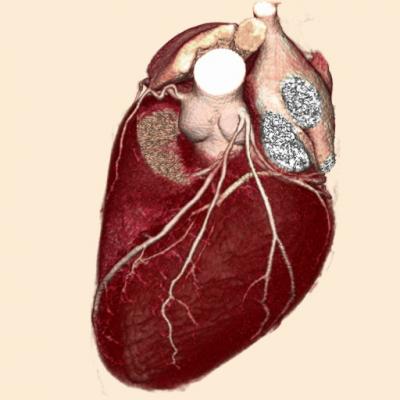
January 25, 2018 – In a large population study that was the first of its kind, researchers found that a simple tool not requiring laboratory tests, the Fuster-BEWAT score, is as effective as the American Heart Association-recommended ICHS (Ideal Cardiovascular Health Index), which includes blood analysis of cholesterol and glucose.
The Fuster-BEWAT score evaluates five health indicators: blood pressure, physical activity, body-mass index, fruit and vegetable intake, and smoking status, and does not require a blood test. These results demonstrate the usefulness of the Fuster-BEWAT score as an index of subclinical atherosclerosis.
The study, carried out at the Centro Nacional de Investigaciones Cardiovasculares Carlos III (CNIC) in Madrid, Spain, demonstrates that the Fuster-BEWAT score effectively predicts the presence and extent of subclinical (asymptomatic) atherosclerosis in healthy middle-aged individuals with no known history of cardiovascular disease. Moreover, Fuster-BEWAT predictions are as accurate as those obtained with the widely used ICHS.
Previous studies, like the PURE study, coordinated by Salim Yusuf, MD and recently published in The Lancet, had already indicated that blood analysis can sometimes be omitted from cardiovascular risk calculations, a particular advantage in regions with limited health care resources.
Researchers from the Icahn School of Medicine at Mount Sinai, CNIC, and other institutions studied 3,983 middle-aged participants without prior cardiovascular disease who were employees of the Banco de Santander in Madrid. This is an ongoing observational prospective cohort study in which participants are being followed for 10 years. The results demonstrate the usefulness of the Fuster-BEWAT score for evaluating cardiovascular risk in situations where it is not possible to obtain blood samples.
“The Fuster-BEWAT score may be particularly relevant in low-resource areas, such as developing countries, where the burden of cardiovascular disease is growing faster than in the rest of the world,” said the study’s corresponding author, Valentin Fuster, M.D., Ph.D., director of Mount Sinai Heart and physician-in-chief of The Mount Sinai Hospital. “The Fuster-BEWAT score is an easy, painless, inexpensive tool that could be implemented in resource-constrained health care settings to identify individuals with a high likelihood of subclinical atherosclerosis at whom preventative management strategies can be directed.”
The study is part of an international initiative that is being conducted through partnerships with the National Center for Cardiovascular Research in Spain, the Icahn School of Medicine at Mount Sinai and the Framingham Heart Study.
Follow up studies in the research cohort will investigate if participants showing ideal ICHS and Fuster-BEWAT metrics have less progression of subclinical atherosclerosis and lower incidence of clinical events over time.
For more information: www.mountsinai.org


 November 12, 2025
November 12, 2025 









